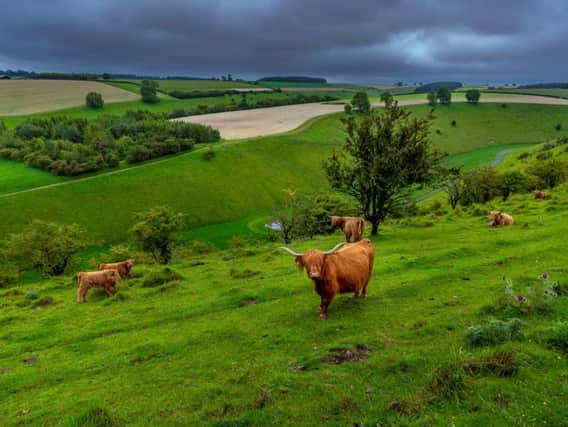Livestock grazing is vital 'interference' to boost biodiversity, new Plantlife study finds


Advertisement
Hide AdAdvertisement
Hide AdBy allowing nature to ‘rewild’ landscapes unchecked, three-quarters of the UK’s most threatened species would decline or disappear altogether within just three years, Dr Trevor Dines said.
Environmentalists have called for the so-called rewilding of parts of the countryside to address historic environmental damage and to help absorb carbon from the atmosphere, but habitats such as wildflower meadows need sufficient levels of grazing and management to prevent them from being lost, Dr Dines said.
“Total land abandonment now poses the greatest threat to plant diversity as it removes the brake on succession: left entirely to their own devices most open landscapes in the UK will change from grassland to scrub and, ultimately, to woodland as large plants reach for the light and out-compete smaller, more delicate species,” he said.
“Grazing and disturbance ‘re-set’ this ecological clock, allowing these fabulous early-succession flowers to thrive in open ground flooded with sunlight.”
Advertisement
Hide AdAdvertisement
Hide AdA careful balance needs to be struck however, he said, adding: “Too much interference can be just as damaging. Our most intensively managed farmland - 46 per cent of land cover - provides the bleakest arena for plants, supporting just 85 species.”
New research by the Plantlife charity suggests that 611 plant species of 1,543 analysed would decline within a decade if land management and grazing stopped, with 127 of these declining within three years.
Dr Dines, Plantlife’s botanical specialist, said: “Any rewilding scenario should ideally deliver enough grazing and disturbance to support all these species.”
Wildflower meadows support 770 species of flowering plants, nearly 1,400 species of pollinators and other insects, and contribute to carbon capture and flood water retention, yet 97 per cent of these meadows have been lost in the UK since the 1930s. Plantlife wants the habitats to be given far better legal protection.